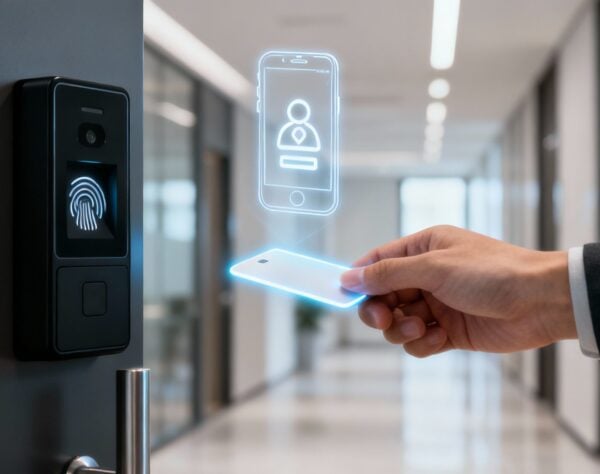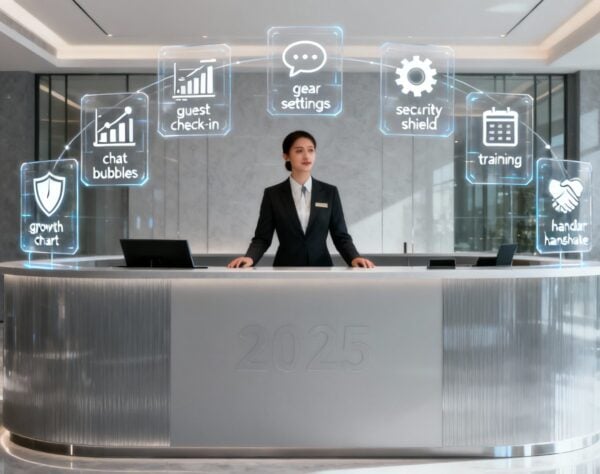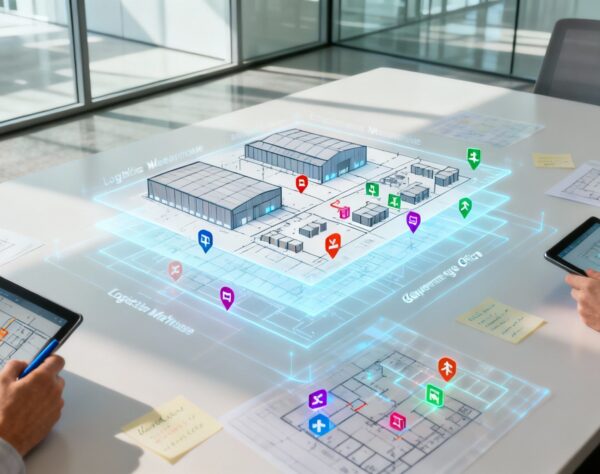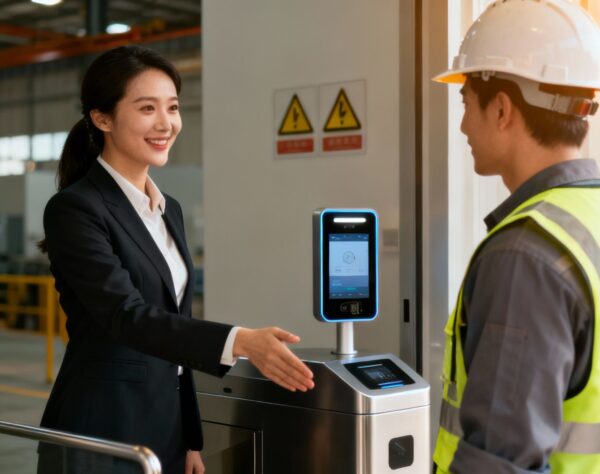
7 Essential Front Desk Skills for Success in 2025
The front desk is more than just a welcome point; it's the command center of your organization's first impression. In a competitive environment, the value of exceptional front desk skills cannot be overstated. A staggering 86% of customers are willing to pay more for a better experience, and that journey often begins with your reception team. This isn't just about smiling and answering phones. It's about creating an environment of efficiency, security, and warmth that sets the tone for every subsequent interaction, from a logistics client signing for a delivery to a family member visiting a resident in an aged care facility.
This article moves beyond generic advice to break down the seven most critical skills that transform a good receptionist into an indispensable asset. We will explore how mastering these competencies boosts visitor satisfaction, streamlines operations, and enhances security. For instance, proficient front desk management can improve workplace efficiency by up to 25%, directly impacting your bottom line. By leveraging the benefits of a modern visitor management system, these skills are amplified, turning your front desk from a simple checkpoint into a strategic hub for safety and hospitality. We’ll show you exactly how to cultivate these abilities, backed by practical examples and actionable insights.
1. Customer Service Excellence
At its core, customer service excellence is the foundational skill for any front desk role. It’s the art of creating a positive, memorable, and seamless experience for every visitor. This proactive approach means anticipating needs and delivering solutions that build goodwill. In fact, companies that excel at customer experience drive revenues 4-8% higher than the rest of their industry. In any professional environment, from a bustling corporate lobby to a critical care facility, the front desk serves as the first impression and a central hub of communication.
The ultimate goal is to make every individual feel valued and respected. This principle is built on the idea that every interaction is an opportunity to strengthen a relationship. It's about empowering staff to go the extra mile, whether that means remembering a returning visitor's name or efficiently managing a high-traffic check-in process. For organizations looking to elevate their guest experience, it's essential to understand the specific strategies that improve customer satisfaction at this critical first touchpoint.
Actionable Tips for Excellence
Implementing superior service requires consistent effort and specific techniques. Here are practical ways to elevate your front desk skills:
- Practice the 10/5 Rule: A concept popularized in hospitality, this rule dictates that you should make eye contact and non-verbally acknowledge a guest at 10 feet and offer a warm, verbal greeting at 5 feet. This simple act makes people feel seen and welcomed before they even reach the desk.
- Use the Guest's Name: Hearing one's own name creates a personal connection. When a guest provides their name during check-in or conversation, use it once or twice more to build rapport. For instance, "Thank you, Mr. Smith. We have your appointment ready."
- Offer Proactive Alternatives: When a request cannot be met, never just say "no." Always follow up with a viable alternative or a commitment to find one. This transforms a negative interaction into a demonstration of your problem-solving capabilities.
- Document Preferences: A visitor management system offers the benefit of logging guest preferences from previous visits. This provides a personalized experience during their next arrival, showing that your organization pays attention to the details.
These focused actions are key components in any world-class service strategy. For a deeper dive, consider exploring dedicated training for reception staff to further develop these essential skills.
2. Professional Communication
Professional communication is the ability to convey information clearly, concisely, and appropriately. For front desk professionals, this means mastering face-to-face interactions, phone etiquette, and written correspondence. A critical skill, since poor communication costs businesses an average of over $62 million per year. It involves adapting your tone to suit different audiences, ensuring every exchange is handled with precision. This skill is critical because the front desk is the nerve center of an organization, and any miscommunication can lead to operational disruptions or a poor visitor experience.

Effective communication is a two-way street that requires both clear expression and active listening. A well-trained front desk team can de-escalate tense situations, provide accurate directions, and ensure messages are relayed without error. For businesses aiming to enhance their operational efficiency, mastering these fundamental communication skills is non-negotiable, as it directly impacts productivity and brand perception.
Actionable Tips for Excellence
Developing strong communication habits requires conscious practice and professional standards. Here are practical ways to improve your front desk communication:
- Speak Clearly at a Moderate Pace: Avoid rushing your words or speaking too softly. A calm, measured pace ensures visitors can easily understand you, which is especially important when conveying critical information like safety protocols.
- Use Positive Language: Frame statements positively to create a more welcoming atmosphere. Instead of saying, “I don’t know,” try, “That’s a great question. Let me find that information for you.” This shifts the focus from a limitation to a solution.
- Confirm Understanding: After giving instructions or receiving information, briefly summarize the key points to ensure alignment. For example, "So, just to confirm, you are here to meet with Ms. Davis in Marketing at 2:00 PM?" This simple step prevents costly misunderstandings.
- Practice Active Listening: Give the speaker your full attention without interrupting. Acknowledge their points with nods or brief verbal cues like "I see." This demonstrates respect and ensures you capture all necessary details, which is one of the most vital front desk skills.
3. Multitasking and Time Management
The ability to juggle multiple responsibilities without sacrificing quality is a cornerstone of effective front desk skills. In a high-traffic environment, front desk professionals must handle guest interactions, answer calls, and manage administrative tasks. This skill isn't about doing everything at once; it's the strategic management of priorities. A front desk that operates like a well-oiled machine instills confidence and reflects the competence of the entire organization.
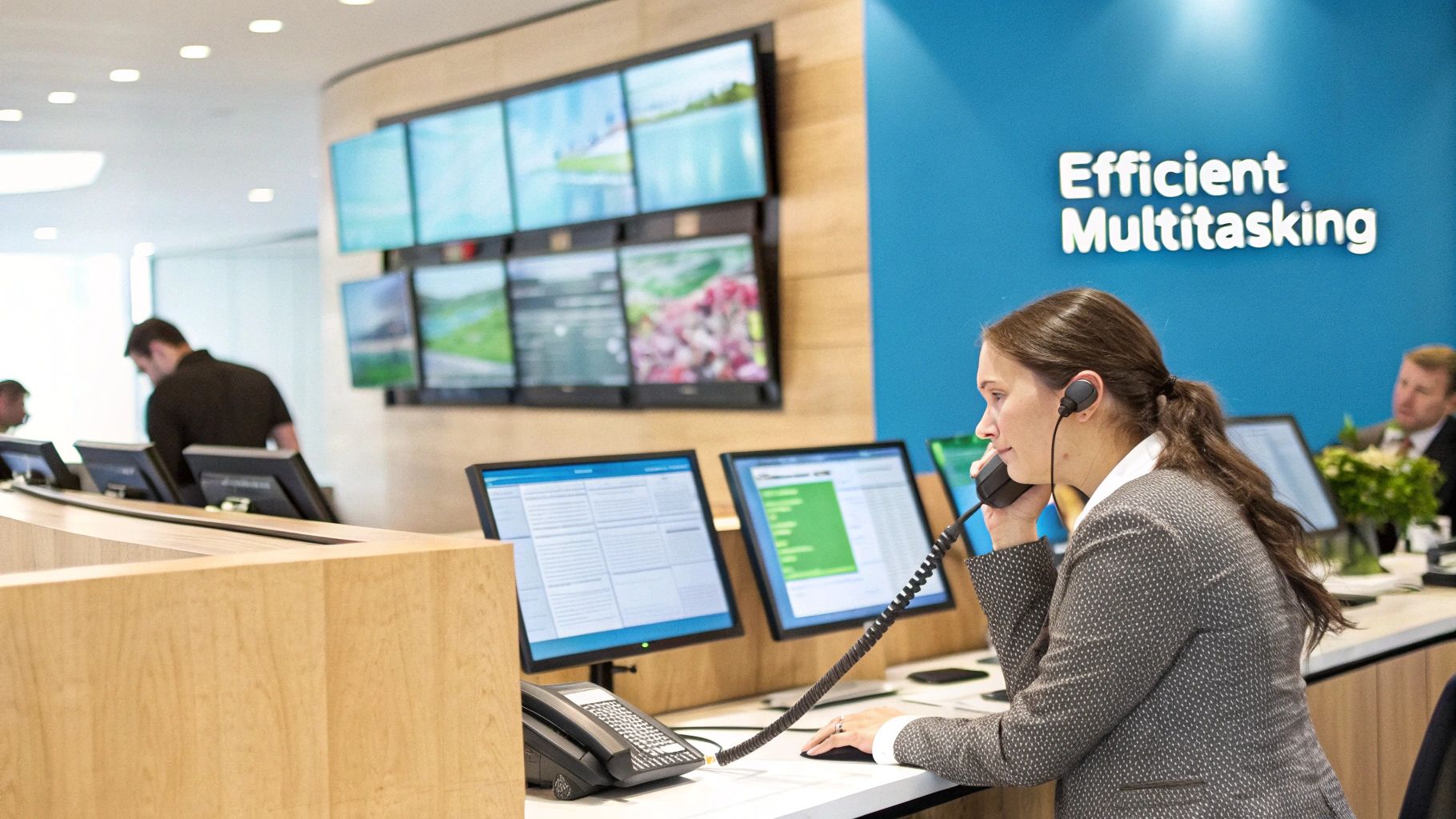
The key is to manage interruptions gracefully while keeping long-term tasks on track. The benefit of a robust visitor management system is that it automates routine processes like check-ins and notifications. This frees up staff from administrative burden, allowing them to focus on more complex, high-value interactions. This is critical, as a typical employee spends nearly 2 hours a day on administrative tasks.
Actionable Tips for Excellence
Developing strong time management and multitasking skills requires a structured approach. Here are practical techniques to master your front desk workflow:
- Use the ABC Prioritization Method: Categorize tasks to clarify focus. 'A' tasks are urgent and critical (e.g., checking in a waiting guest), 'B' tasks are important but not urgent (e.g., preparing welcome packets), and 'C' tasks are non-essential (e.g., reorganizing a supply cabinet). This ensures you're always working on what matters most.
- Batch Similar Tasks Together: Group repetitive duties and handle them in dedicated blocks of time. For instance, set aside 15 minutes every two hours to respond to non-urgent emails or process mail. This minimizes the mental effort of switching between different types of tasks.
- Practice the 'Touch It Once' Rule: When you pick up a document, email, or task, aim to complete the necessary action immediately rather than setting it aside to handle later. This prevents tasks from piling up and reduces redundant effort.
- Leverage Checklists for Key Processes: For multi-step procedures like new visitor registration or end-of-day reporting, use a physical or digital checklist. This ensures accuracy and completeness, especially during busy periods when details are easily overlooked.
4. Technology Proficiency
In today's digitally driven world, technology proficiency is an essential front desk skill. This competence involves the ability to efficiently operate a wide range of software and hardware. A modern front desk professional must be adept at navigating these tools to manage schedules, process information, and ensure a smooth, secure, and efficient operational flow. The front desk is the operational nerve center, and technological fluency is the language it speaks.
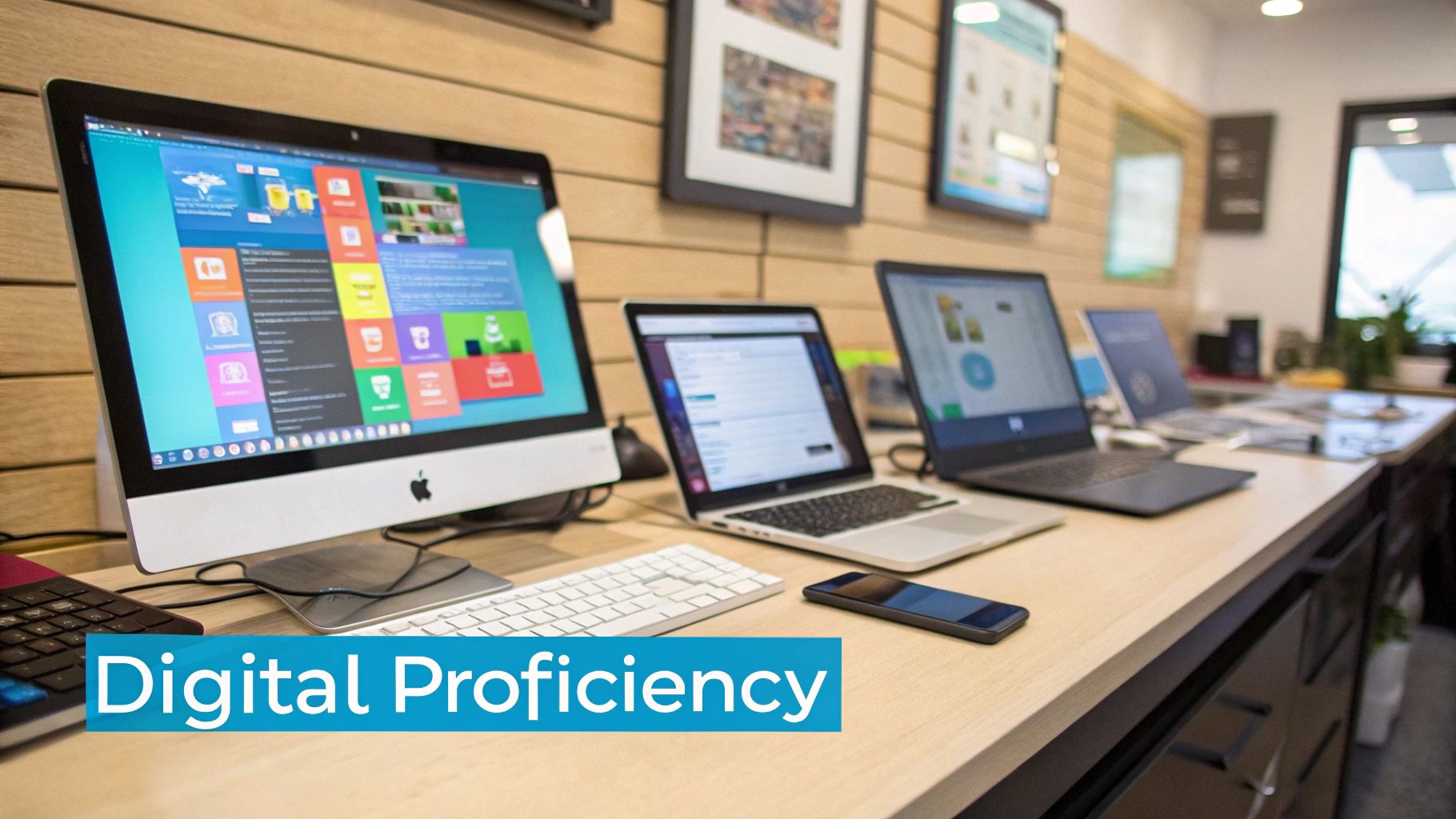
The core benefit of this proficiency is not just speed but also accuracy and security. Mastering these systems allows staff to focus on the human element of their role, confident that the administrative backbone is solid. Studies show that effective use of technology can boost employee productivity by over 20%. Exploring how technology can transform your business operations reveals its deep impact on enhancing the guest experience.
Actionable Tips for Excellence
Developing strong technology skills requires a commitment to continuous learning. Here are practical ways to improve your proficiency at the front desk:
- Learn Keyboard Shortcuts: Mastering shortcuts for your most-used software functions can dramatically increase your speed and efficiency. This simple habit minimizes clicks and allows you to handle guest interactions more swiftly.
- Keep Quick-Reference Guides: Create or keep user manuals and quick-reference sheets accessible. Having a go-to guide for complex or rarely used functions reduces stress and resolves issues faster without assistance.
- Practice During Downtime: Use slower periods to explore different modules and features of your software. This proactive learning helps you become more comfortable and knowledgeable, preparing you for high-pressure situations.
- Create Backup Procedures: Technology can fail. Develop and practice a clear manual backup procedure for critical tasks like check-ins or appointment scheduling. This ensures operational continuity and maintains professionalism during technical difficulties.
5. Problem-Solving and Conflict Resolution
Inevitably, challenges will arise at any front desk. The ability to handle these situations with grace and efficiency is a hallmark of truly professional front desk skills. This skill involves de-escalating tension, identifying the root cause of a problem, and implementing a solution that restores visitor confidence. Whether resolving an overbooking or navigating a complex insurance dispute, this skill is critical for maintaining a positive and orderly environment.
Effective conflict resolution turns a potential negative review into a story of exceptional service. An astounding 95% of customers will return if a business resolves an issue quickly and efficiently. By empowering staff with the right tools, including a visitor management system that provides clear data, organizations can transform difficult encounters into opportunities for demonstrating their commitment to guest satisfaction. For more strategies, Harvard's Program on Negotiation offers valuable resources.
Actionable Tips for Excellence
Resolving conflicts effectively requires a structured and empathetic approach. Here are practical ways to master this front desk skill:
- Implement the L.A.S.T. Method: This is a simple but powerful framework for service recovery: Listen attentively to the guest's entire story without interrupting, Apologize sincerely for the inconvenience, Solve the problem by taking prompt action, and Thank the guest for their patience and for bringing the issue to your attention.
- Offer Choices, Not Ultimatums: When possible, provide two or three viable solutions to a problem. This empowers the guest by giving them a sense of control over the outcome, turning a confrontational situation into a collaborative one.
- Document Recurring Issues: A visitor management system benefits businesses by logging recurring problems. This data provides valuable insights to management, helping to identify systemic issues and develop permanent solutions that prevent future conflicts.
- Know When to Escalate: Empowered staff can handle most issues, but it's crucial to recognize situations that require a manager's intervention. Establishing clear escalation protocols ensures that complex or high-stakes conflicts are managed by the appropriate authority.
6. Attention to Detail and Accuracy
While customer-facing skills are paramount, they must be supported by an unwavering commitment to detail and accuracy. This skill is the meticulous focus on ensuring every piece of information is precise, complete, and error-free. It involves a systematic approach to verifying data and following procedures. In environments like hospital registration or financial institutions, even a minor mistake can have significant consequences, making accuracy a non-negotiable component of professional front desk skills.
This principle is about building trust and ensuring operational integrity. For a front desk professional, this means understanding that accuracy is not just about avoiding mistakes. Whether managing confidential documents at a law firm or processing complex transactions at a hotel, the ability to handle information with precision protects both the visitor and the organization, reinforcing a reputation for reliability and competence.
Actionable Tips for Excellence
Cultivating a sharp eye for detail requires deliberate habits and systems. Here are practical ways to improve your accuracy at the front desk:
- Double-Check All Numerical Entries: Before finalizing any transaction, reservation, or data entry, take a moment to review all numbers. This includes dates, room numbers, billing amounts, and phone numbers. A simple verification step can prevent major headaches later.
- Use Checklists for Complex Procedures: For multi-step tasks like group check-ins or event registrations, use a standardized checklist. This ensures no critical step is missed and maintains consistency, especially during busy periods. Having clear, documented emergency procedures is vital, as outlined in guides for developing workplace evacuation plans.
- Read Back Important Information: Verbally confirm critical details with the guest or client. For example, say, "Just to confirm, I have your departure date as Friday the 15th." This simple act allows for immediate correction and shows the guest you are diligent.
- Take Micro-Breaks to Maintain Focus: Constant concentration can lead to mental fatigue and errors. Step away from the screen for 30-60 seconds between complex tasks to reset your focus. This short pause can significantly improve your ability to spot inconsistencies.
7. Cultural Sensitivity and Diversity Awareness
Cultural sensitivity and diversity awareness are essential front desk skills in our increasingly globalized world. This skill involves understanding and respecting the diverse cultural backgrounds, customs, and communication styles of every visitor. It’s about creating an inclusive environment by moving beyond assumptions. A front desk professional with this skill ensures that every guest feels seen, valued, and respected, regardless of their origin.
This principle has been championed by global organizations who recognize that exceptional service is universally understood but culturally nuanced. For instance, a gesture that is polite in one culture may be perceived differently in another. By training staff on these subtleties, these companies enhance the guest experience and build a reputation for inclusivity. For comprehensive guidance on navigating these interactions, exploring strategies for managing cultural differences in the workplace can provide invaluable insights.
Actionable Tips for Inclusivity
Fostering a culturally aware front desk requires intentional practices and a commitment to learning. Here are practical ways to improve your diversity awareness skills:
- Learn Basic Greetings: Master polite greetings in the most common languages spoken by your clientele. A simple "Hello," "Hola," or "Bonjour" demonstrates effort and respect, immediately setting a welcoming tone.
- Be Mindful of Non-Verbal Cues: Understand that personal space, eye contact, and gestures vary significantly across cultures. Maintain a professional and adaptable demeanor, observing the visitor's comfort levels and adjusting your own body language.
- Avoid Assumptions: Never make assumptions about a person's needs, background, or preferences based on their name, accent, or appearance. When in doubt, it is always better to ask respectful, open-ended questions to clarify.
- Leverage Technology for Accessibility: A modern visitor management system offers the benefit of inclusivity. For example, the ability to enable multilingual sign-in eliminates language barriers and ensures a smooth, dignified check-in process for international guests.
7 Key Front Desk Skills Comparison
| Skill/Aspect | Implementation Complexity 🔄 | Resource Requirements ⚡ | Expected Outcomes 📊 | Ideal Use Cases 💡 | Key Advantages ⭐ |
|---|---|---|---|---|---|
| Customer Service Excellence | Moderate – requires ongoing emotional effort and training | High – skilled staff, training programs | High customer satisfaction, loyalty, positive reputation | Front desk, hospitality, retail | Builds loyalty, reduces complaints, positive word-of-mouth |
| Professional Communication | Moderate – consistent attention to tone, style, and clarity | Medium – communication tools and training | Reduced miscommunication, enhanced professionalism | Multichannel communication, team coordination | Builds trust, improves collaboration, error reduction |
| Multitasking and Time Management | High – managing multiple tasks simultaneously under pressure | Medium – organizational tools, training | Increased productivity, reduced customer wait times | Busy front desks, healthcare, corporate reception | Maximizes efficiency, flexibility, problem-solving |
| Technology Proficiency | High – requires learning multiple software and systems, ongoing updates | High – software licenses, hardware, training | Improved operational efficiency, accuracy, reporting | PMS, CRM, payment processing environments | Speeds up processes, improves accuracy, enables analytics |
| Problem-Solving and Conflict Resolution | Moderate to High – demands critical thinking and emotional resilience | Medium – training in mediation and decision-making | Prevents escalation, higher customer satisfaction | Handling disputes, operational challenges | Reduces management load, boosts confidence, operational improvement |
| Attention to Detail and Accuracy | Moderate – requires constant vigilance and systematic checking | Medium – checklists, peer reviews | Fewer errors, compliance, trustworthiness | Data-heavy, financial, healthcare front desks | Prevents costly mistakes, enhances credibility |
| Cultural Sensitivity and Diversity Awareness | Moderate – ongoing education and adaptation | Medium – training, language resources | Inclusive environment, reduced misunderstandings | International hotels, healthcare, multicultural settings | Expands markets, enhances reputation, improves competence |
Elevating Your Front Desk with Smart Technology
The journey to mastering the front desk is built upon a foundation of core competencies. We've explored the seven essential pillars: from customer service excellence and professional communication to multitasking and problem-solving. Each skill, whether it's meticulous attention to detail or a deep appreciation for cultural sensitivity, contributes to an exceptional reception area. These human-centric abilities are what transform a simple greeting into a memorable first impression, laying the groundwork for a stellar organizational reputation.
However, developing these front desk skills is only part of the equation. To truly empower your team, you must pair their talent with intelligent technology. Manual processes like paper logbooks create administrative burdens that hinder your staff's ability to focus on the visitor experience. Statistics show that employees can spend up to 3 hours per day on manual, repetitive tasks, time that could be reinvested into guest-facing activities.
From Gatekeepers to Strategic Contributors
A dedicated visitor management system (VMS) is a game-changer. By automating the entire check-in and check-out process, a VMS like VisitUs liberates your front desk professionals from mundane administrative duties. Instead of being bogged down by paperwork, they can dedicate their energy to providing personalized assistance, resolving complex issues, and creating a genuinely welcoming atmosphere. This shift is transformative; it elevates their role from a simple gatekeeper to a strategic contributor to both customer satisfaction and operational security.
The benefits extend far beyond efficiency. A VMS provides robust, real-time data, giving you a clear overview of who is on-site at all times. This enhances security compliance and ensures your facility is prepared for any emergency, a critical consideration for logistics, manufacturing, and aged care environments. To further modernize front desk operations, consider how you can automate repetitive tasks across your workflows, freeing up valuable human resources for more strategic initiatives.
Ultimately, investing in both your people and your technology is the key to unlocking a world-class front desk. By honing these seven essential front desk skills and supporting them with a powerful VMS, you create a reception that is efficient, secure, and profoundly welcoming. This dual approach ensures every visitor interaction reinforces your organization's commitment to professionalism and excellence.
Ready to empower your team and transform your visitor experience? Discover how VisitUs can automate your reception, enhance security, and free up your staff to focus on what truly matters. Explore the benefits and book a demo at VisitUs today.


